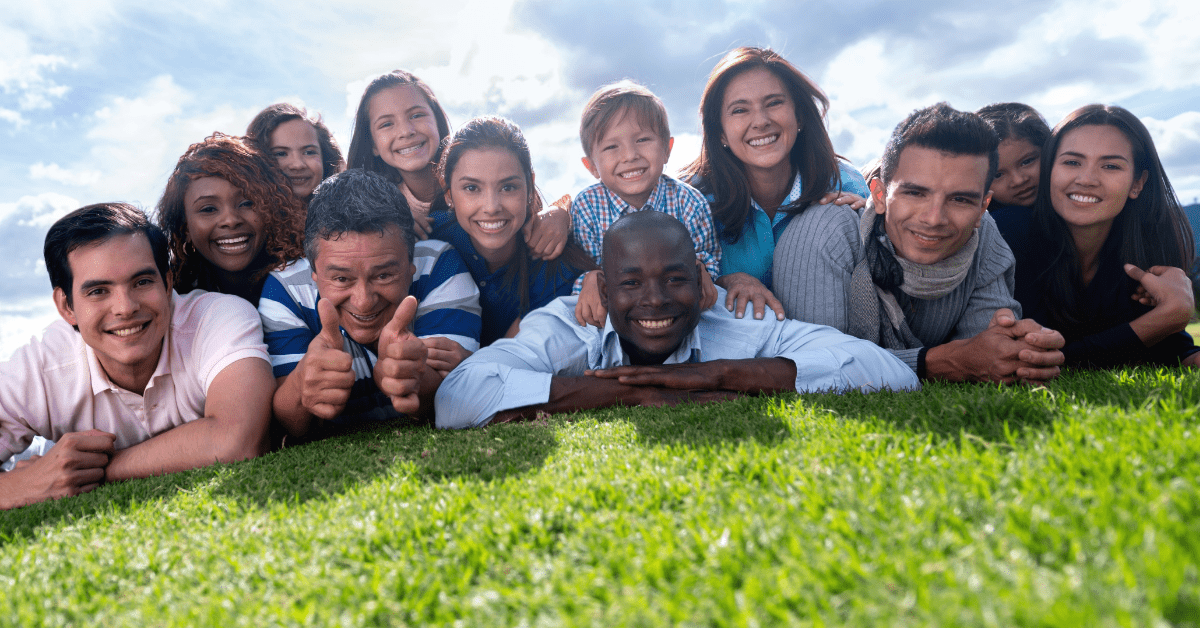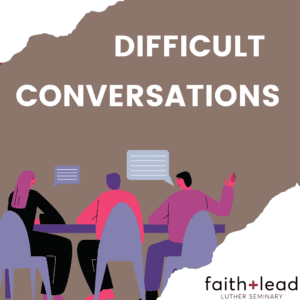If you were to create eyeglasses for a three-eyed creature, what would those glasses look like?
Play with that idea for a moment, perhaps even sketching out a design on paper or in your imagination. Those of you bold enough may even find some pipe cleaners, plastics, or wire to build a model of these glasses along with a crazy creature to match. Engineering design challenges like this one are a tangible way to build resiliency and resourcefulness while addressing grace and vocation. While this building of eyeglasses for a three-eyed creature may seem like a silly challenge, my hope is that it gets you thinking about the difficult conversations about change that we need to have more often. From earth’s changing climate to the work before us in changing unjust patterns of systemic racism; certainly great challenges and changes are before us. Yet as children of God, we are resilient, resourceful and creative problem-solvers.
As an environmental educator and enviroSTEM consultant, my eyes and ears have spent countless hours observing and learning from people like you: clergy, teachers, students and other community leaders. As a current resident of the Minneapolis area I have been in the intense mix of change, especially the past two years, that go with: racial injustices, environmental racism, COVID cancellations, onsite-to-virtual gatherings redefining how we connect, divides in community, and more.
I have no easy answers. However, what I have learned in my journey is this resolve:
Change happens. Our stories are interconnected. Let’s talk about it.
Back to those glasses you created in your mind, on paper, or with materials in your hands: What creature did you choose to focus on? And what type of lenses did you add? Which materials did you choose to construct the set of glasses? Sticking with this metaphor of glasses for a creature: Do you perceive social justice issues as monsters to tackle, someone else’s animal, or bizarre creatures that need some clarity? Tackling challenges takes creativity, resourcefulness and resiliency. We need to look at an issue through a variety of lenses to see then better understand the changes that are happening, the interconnectedness of it all, then explore ways to talk about it with others.
Repentance, uncreating and hope
Three moral vision lenses are what eco-theologian Cynthia Moe-Lobeda recommends when addressing structural evil with love and vocation: “through myriad forms of ecological degradation, we are disrupting a fundamental quality of God’s garden—it’s life-generating capacity. We are uncreating.” While recognizing this repentance and uncreating as the first lens, she goes on to explain a second lens is that of hope. This is a special hope that is “breaking through the volcanic wasteland of economic and ecological violence” for she recognizes the interconnectedness of our daily work of doing, learning, playing, eating, and being as ways to bring forth change in positive hope-filled ways. The third lens Moe-Lobeda names is that humans are part of God’s abundant Creation and we “are not alone in the move toward just and sustainable living.”
People and places are interconnected, and both matter. In working with small children, I lead them in an activity where we try and clap our hands as loudly as we can, making the most joyful, loud noise together. Then we list things we are good at, our God-given strengths, on one hand and on the other hand we name things the world needs and places that need healing right now. This is vocation: where using our gifts and talents to meet the needs of the world produces joy. Jesus as love, leader, and light is with us on the journey!
And in conversations with churches and educators and learners of all ages we also acknowledge land as originally owned and in harmony with indigenous cultures (Dakota and Ojibwe where I live) that have been colonized over time. And Dakota and Ojibwe people are still here with languages alive and sacred sites like Bdote and Wakan Tipi, now within a system we call “city.” These are stories of interconnected people and places. For we are in it and on it.
Ecology + Economy = Ecodomy
In the New Testament, timing seems to be everything. Jesus takes time in the wilderness for prayer, a busy rush of people follow after Jesus, yet he takes time to address them: for example, a woman touching his cloak in a crowd. After missing the timing for a friend’s death, Jesus wept. These ancient stories bring forward again for me the ideas that: Change happens. Our stories are interconnected. Let’s talk about it.
Barbara Rossing connects Kairos in the New Testament as timing in the “urgent moment or turning of the ages” with ecodomy in the current climate crisis. She describes “climate change is the epitome of the ecological crisis and Kairos the demand.” Ecology plus economy is ecodomy; both systems in which we are embedded. Let us name that and do justice using hope and love within their interconnected parts, people, and places.
It’s a series of difficult conversations that leads to hope and change. One such story is about doctor, professor, change-maker, Kenyan named Wangari Maathai who won the Nobel Prize in 2004 for starting the Green Belt Movement. Millions of trees were planted across Africa at her instigation. The millions of trees continue to improve water quality, food, fuel sources, shelter, and habitat across the continent. In a Nobel lecture she shared this systems perspective that points us again to repentance, hope and community: “Today we are faced with a challenge that calls for a shift in our thinking, so that humanity stops threatening its life-support system. We are called to assist the Earth to heal her wounds and in the process heal our own—indeed to embrace the whole of creation in all its diversity, beauty and wonder. Recognizing that sustainable development, democracy and peace are indivisible is an idea whose time has come.”
Our churches are filled with people who are medical care providers, students, business owners, food servers, retirees, plumbers, change-makers, and more. We are all creatures of Creation, in Creation, and vulnerable to changes in our social and ecological systems. The COVID pandemic is hard on everyone. Increasing natural disasters due to the changing climate are hard to face with hope. Addressing racial injustices over centuries and today, working towards reconciliation and healing is hard work. Based on our unique human stories, we have all experienced varying levels of vulnerability, racism and oppression; but there can be common ground and interconnectedness if we talk and share.
As creatures of planet earth, as children of God, as beings working together in systems big and small; we can continue to look through the lenses of repentance, hope and community. My prayer is that we see ourselves in the systems and use our eyes to see and our ears to listen. That we use our tongues to name hard things and have courage to move forward with difficult conversations. Change happens. Our stories are interconnected. Let’s talk about it.
References
Maathai, W. (Dec. 10, 2004). Nobel Lecture. Oslo, Norway. https://www.nobelprize.org/prizes/peace/2004/maathai/26050-wangari-maathai-nobel-lecture-2004/
Moe-Lobeda, C. (2013). “Resisting structural evil: Love as ecological-economic vocation.” Fortress Press. Page xvii
Rossing, B.R & Buitendag, J. (2020). ‘Life in its fullness: Ecology, eschatology and economy in a time of climate change’, Page 2. HTS Teologiese Studies/Theological Studies 76(1), a6245. https: //doi.org/10.4102/hts.v76i1.6245




